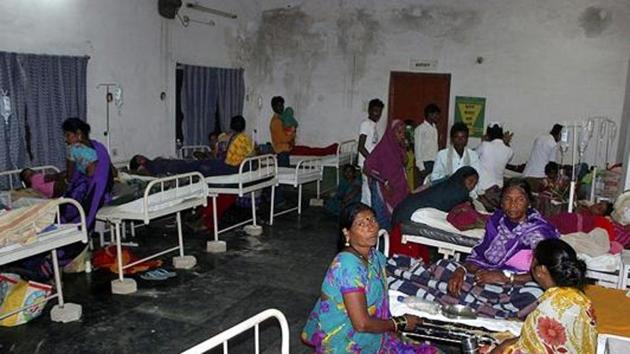The new health policy’s weak commitment towards laws is worrying
Steering the system to ensure greater equity will require committed leadership and consultative processes. Bringing change is not easy and at this point in time, one can only wish for the best.
In the midst of loss of trust in India’s health system, the new National Health Policy (NHP), which was released recently, has generated interest and hope. It is generally being felt that it is a revved up version of the NHP 2002. This is partly true except that it has three distinct additions: First, it provides a clearer direction regarding the role of the State from being a service provider to overseeing the functioning of stakeholders with a thrust on strengthening the public-private collaboration in the sector.

Second, it proposed an ambitious agenda of establishing institutions to cope with the transition from welfarism to market economies: The National Institute for Chronic Diseases, The National Health Standards Organisation, National Allied Professional Council, medical tribunals for grievance redressal, national digital authority, health technology assessment, and other autonomous bodies to purchase services from the public and private providers, and a common sector innovation council to facilitate inter-departmental collaboration for medical research and discovery.
In addition, the policy also recognises the need to strengthen regulatory frameworks related to medical devices, clinical establishments, and certification of public hospitals for ensuring adherence to quality benchmarks.
Third, the policy mentions the need to shift the financing modalities ranging from per capita allocations to performance-based devolution of funding to facilities, besides differential funding of central grants to fiscally weaker states.
Concerns and challenges
First, the disconnect between the ambition in the text and the public investment proposed – from 1.15% of GDP now to 2.5% of GDP by 2025 - is glaring. Currently, due to low public spending of about $17 per capita, barely 15% of the primary care services are being provided. The estimated requirement is $85 per capita.
Besides, the non-availability of skilled human resources and essential infrastructure in rural and urban areas, public or private is a serious barrier. The resource gap for capital expenditure in public facilities alone is estimated to be about Rs 1 lakh crore and for Rs 40,000 crore for human resources to achieve the Indian Public Health Standards at the district and below.
More than two thirds of this deficit is in the ‘underserved’ areas that have a fifth of the money and three quarters of the disease burden. With no fiscal targets for the Centre under the NHP, the burden of funding this gap will be on cash-strapped states. Even a rich state such as Maharasthra is disinvesting in public health with a per capita investment of Rs 776 in 2016-17, half of what Chhattisgarh is spending. The NHP skirts round this key issue.
Second, the policy assumes that the public and private sectors can function and compete in the same space, thereby simplifying complex dynamics. The NHP repeatedly mentions ‘strategic purchasing’ of private services for ‘gap’ filling to address supply side imbalances.
In reality, the gap is a huge hole with the private sector providing 80% out-patient and 60% in-patient care with a disproportionately higher share in the two sub-markets of tertiary and secondary care. Public hospitals providing rational and cheaper care do keep a check on the private sector from unnecessary procedures and profiteering. This then makes it wiser to invest in public hospitals as a first charge before pushing to purchase services from the private sector.
Finally, a matter of serious concern is the NHP’s weak commitment towards regulations, disproportionate to the aggressive policy stance towards private sector collaboration. The NHP makes a perfunctory mention of the important issue of the weak regulatory environment in this sector. It is not just instituting better laws and restructuring of the medical and nursing councils to be more accountable and less corrupt but establishing an independent drug regulator with teeth to oversee the licensing of drugs.
The NHP does not even mention the long pending and contentious issue of bringing drug regulation under the central control despite evidence of state drug controllers playing havoc with the licensing and drug quality assurance aspects. Weak supervision of pharmacies due to inadequate and poor quality staff is responsible for the rampant misuse of antibiotics, endangering public health.
And finally, the fiscal implications of the proposed interventions and the institutional capacity of states to implement seem to have been overlooked in the absence of prioritisation of what must precede what.
The challenge rests squarely with the implementing agencies to formulate the plans for the transformative change envisioned in the NHP.
Steering the system to ensure greater equity will require committed leadership and consultative processes. Bringing change is not easy and at this point in time, one can only hope for the best.
K Sujatha Rao is former Union secretary, ministry of health
The views expressed are personal



